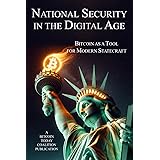Navigating the Crypto World: Your Guide on Where and How to Buy Bitcoin and Other Cryptocurrencies
Just recently, a friend shared with me their growing fascination with the digital economy. They, like many others, have observed the increasing prevalence of online transactions and the undeniable rise of digital assets. This newfound curiosity often leads to a pivotal question: “Where do I even begin if I want to buy Bitcoin or other cryptocurrencies?” This sentiment perfectly mirrors the surging interest in the crypto sector, a trend extensively discussed in the accompanying video above.
Indeed, countless individuals are now looking to invest in digital currencies, yet many find themselves overwhelmed by the technical jargon and the sheer number of available platforms. The video serves as an invaluable resource, addressing the most frequent queries from beginners and experienced enthusiasts alike. This article will further expand upon the video’s insights, providing a comprehensive guide to help you understand the core concepts and identify the best services for your cryptocurrency journey, whether you’re taking your very first step or looking to optimize your existing strategy for buying cryptocurrencies.
Understanding the Foundational Concepts: Broker, Exchange, and Wallet
Before diving into specific platforms, it is paramount to grasp the fundamental distinctions between a broker, an exchange, and a wallet within the cryptocurrency ecosystem. Many newcomers, as highlighted in the video, frequently confuse these terms, which can complicate their entry into the market. Therefore, clarifying these roles is the essential first step towards confidently acquiring digital assets.
A **broker** acts as an intermediary, facilitating the purchase of cryptocurrencies directly from their inventory using fiat currency, such as Euros or Dollars. Think of it like a traditional financial broker who buys shares on your behalf; the online crypto broker performs a similar function, offering ease of access. When you choose to buy Bitcoin through a broker, you are essentially trading your conventional money for a digital asset, often at a straightforward price with the broker managing the underlying complexity.
An **exchange**, conversely, is a marketplace where users can trade cryptocurrencies with each other. While many modern platforms now offer both broker services (fiat-to-crypto) and exchange functionalities (crypto-to-crypto), a pure exchange primarily facilitates the swapping of one digital asset for another. For instance, you might exchange Bitcoin for Ethereum, or vice versa, on an exchange. Consequently, these platforms often provide more advanced trading features and a wider array of trading pairs compared to dedicated brokers.
A **wallet** is distinct from both brokers and exchanges; it is a software or hardware device that stores the cryptographic keys (private and public keys) necessary to access and manage your digital assets on the blockchain. It does not literally “hold” your cryptocurrencies, but rather provides the means to prove ownership and authorize transactions. Crucially, understanding the difference between a custodial wallet (where a third party, like a broker or exchange, holds your private keys) and a non-custodial wallet (where you retain sole control of your private keys) is vital for security and ultimate ownership of your digital wealth.
Why Consider Buying Bitcoin and Other Cryptocurrencies?
Before proceeding to buy cryptocurrencies, it is critical to address the fundamental “why.” The allure of rapid gains, as often sensationalized online, is insufficient justification for investment. Instead, a deeper understanding of Bitcoin’s underlying value proposition and the broader potential of blockchain technology is essential. Bitcoin, for example, is valued for its decentralized nature, scarcity, censorship resistance, and its role as a potential hedge against traditional financial systems.
Beyond Bitcoin, other digital assets, often called altcoins, offer diverse functionalities, from supporting decentralized applications (dApps) to enabling faster, cheaper international payments. Consequently, an informed decision to engage with this asset class should stem from an appreciation for its technological innovation and long-term potential, rather than speculative impulses. Due diligence and continuous learning are your strongest allies in this evolving financial landscape.
Getting Started: Beginner-Friendly Platforms to Buy Cryptocurrencies
For those taking their initial steps into the crypto world, simplicity and security are paramount. The video highlights several platforms that excel in user-friendliness, making them ideal for individuals new to buying Bitcoin and other digital assets. These services typically offer a streamlined process to convert fiat currency into crypto, managing much of the technical complexity on your behalf.
Coinbase: The Industry Standard for Beginners
Coinbase is widely recognized as one of the most reputable and user-friendly platforms globally for acquiring cryptocurrencies. Established early in the industry’s history, it has built a reputation for solidity, seriousness, and robust regulation, particularly given its Silicon Valley base in the United States. Its intuitive interface is often cited as a primary reason for its popularity among first-time buyers, effectively simplifying the process of purchasing digital assets like Bitcoin and Ethereum.
While Coinbase is known for its ease of use, it generally comes with higher transaction fees compared to more advanced exchanges. This trade-off is often acceptable for beginners who prioritize convenience and security. Coinbase functions primarily as a broker, allowing direct purchases with fiat currency, and provides a custodial wallet where your digital assets are securely stored. Upon opening an account and purchasing your first 100 Euros in Bitcoin, users can often receive a 10 Euro bonus, making it an attractive entry point for many.
Luno: A Reliable Alternative with Strong Partnerships
Luno is another highly recommended service, often mentioned in the same breath as Coinbase for its reliability and user-friendly experience. The speaker notes a direct collaboration with Luno, underscoring its trustworthiness. This platform also offers a straightforward way to buy Bitcoin and other cryptocurrencies, providing a secure, custodial environment for your digital holdings. Its accessibility and focus on simplicity make it an excellent choice for those seeking an alternative to Coinbase.
New users on Luno may also benefit from promotional campaigns. For instance, purchasing your first 250 Euros in Bitcoin can currently yield an additional 15 Euro bonus in Bitcoin. Such incentives further enhance Luno’s appeal for individuals embarking on their cryptocurrency investment journey. Like Coinbase, Luno’s ease of navigation and clear processes are designed to reduce the intimidation factor for new crypto participants.
Conio: An Italian Solution with Enhanced Security Features
Conio stands out as an Italian-based service, particularly praised for its exceptional user-friendliness, especially for mobile users. It operates as an application, simplifying the purchasing process to a few taps. Notably, Conio presents an intriguing hybrid wallet solution; unlike purely custodial wallets, Conio employs a multi-signature wallet system involving three private keys. One key is provided to the user, while the other two are managed by the company itself and a secure external entity.
This multi-signature approach offers a unique blend of security and convenience. It mitigates the risk of a single point of failure (e.g., if you lose your private key) while still providing a layer of protection managed by professionals. This system is particularly beneficial for individuals without an extensive IT background, such as the speaker’s mother and girlfriend, who were advised to use Conio. Although it might have daily purchase limits (e.g., 500 Euros) and potentially higher exchange prices, its simplicity and enhanced recovery options make it a compelling choice for many beginners who prioritize ease of use and safety nets.
Stepping Up: Platforms for the More Experienced User
As your confidence and knowledge in the cryptocurrency market grow, you may seek platforms that offer lower fees, more advanced trading options, and greater control over your assets. These platforms typically cater to users who understand market orders, liquidity, and are prepared to navigate slightly more complex interfaces. They often bridge the gap between simple broker services and full-fledged crypto exchanges.
Coinbase Pro: The Cost-Effective Sibling
For existing Coinbase users ready to reduce their trading fees, Coinbase Pro offers a significant advantage. While it requires a slightly better understanding of trading interfaces, including how to place limit and market orders, the learning curve is manageable. The core benefit lies in its substantially lower commission rates, especially for higher volume trades. It allows users to leverage the security and regulatory compliance of Coinbase while gaining access to a more professional trading environment.
Bitstamp: A Historic and Versatile Platform
Bitstamp is recognized as one of the earliest and most historical services in the crypto industry, providing a reliable platform for both brokers (fiat-to-crypto) and exchange (crypto-to-crypto) functionalities. It offers a balance between advanced features and accessibility, making it suitable for users who have moved beyond the absolute beginner stage but are not yet full-time traders. Bitstamp supports various trading pairs and is known for its stability and long-standing presence in the market, providing a robust option for buying Bitcoin and other established cryptocurrencies.
Kraken: Lower Costs and High Liquidity
Kraken is a widely used and highly recommended platform for its lower costs and high liquidity, particularly appealing to more experienced traders. Although its graphical interface might appear slightly older compared to some newer platforms, its performance and fee structure are very competitive. Kraken is known for its extensive range of cryptocurrencies and its commitment to security, making it a solid choice for those seeking efficient and economical trading of digital assets. The high liquidity ensures that larger orders can be filled without significant price impact, a crucial factor for active participants.
LiteBit: A European Niche for Diverse Assets
LiteBit, a Dutch exchange, stands out for offering both broker and exchange services with relatively low costs. It provides access to over 50 different cryptocurrencies, making it an excellent option for exploring smaller, less common digital assets. One notable feature is the ability to deposit funds via bank transfer to hold credits (1 credit = 1 Euro) on the platform, allowing for immediate purchases without incurring higher credit card fees. However, users should be aware of its occasional liquidity challenges, especially during periods of high demand, where their stock of certain coins might temporarily run out.
TheRock Trading: Italian Security and Longevity
TheRock Trading, another Italian platform, is distinguished as one of the longest-standing crypto exchanges globally, having survived numerous market upheavals. This longevity is attributed to its exceptionally scrupulous security protocols, including a rigorous Know Your Customer (KYC) verification process that can be lengthy. While the extended verification might deter some, it underscores the platform’s commitment to security and regulatory compliance. It offers high IT security and is ideal for users who prioritize safety and stability above all else, even if it means sacrificing some immediate convenience or experiencing lower liquidity compared to global giants.
Crypto.com: A Rising Star with Ecosystem Benefits
Crypto.com has rapidly emerged as a prominent player, consistently expanding its offerings and gaining traction among both new and experienced users. The platform provides a sleek graphical interface and robust security, backed by insured funds, similar to industry giants like Coinbase. A key advantage for users within the Crypto.com ecosystem is the ability to stake CRO tokens, which can significantly reduce trading commissions. While its selection of trading pairs is still growing, its impressive interface, liquidity, and commitment to user experience make it a compelling choice for managing and buying cryptocurrencies.
2gether: Expanding Preferences
2gether is a platform that is steadily gaining recognition, positioning itself as a viable option for users. While the transcript does not delve into extensive details about its features, its inclusion in the speaker’s preferences suggests it offers a competitive blend of services that appeal to a growing user base. As the crypto landscape evolves, platforms like 2gether are continually improving their offerings to meet the diverse needs of investors.
Advanced Trading: Crypto-to-Crypto Exchanges
For those looking to trade a wider variety of cryptocurrencies, especially newer or smaller cap altcoins, direct crypto-to-crypto exchanges become indispensable. These platforms allow you to exchange one digital asset for another, often facilitating access to thousands of different tokens. Typically, you would first acquire a major cryptocurrency like Bitcoin or Ethereum from a broker, then transfer it to an exchange to perform subsequent trades.
Binance: The Global Powerhouse
Binance started as a pure crypto-to-crypto exchange and has grown into the world’s largest by trading volume. While it now offers fiat-to-crypto purchases via card, the commissions for direct purchases can be high. Therefore, the recommended approach is to first buy Bitcoin or Ethereum on a broker like Coinbase or Luno, then transfer those funds to your Binance account. Binance boasts an unparalleled selection of trading pairs, high liquidity, and a comprehensive suite of trading tools, making it the go-to platform for experienced traders seeking access to a vast array of digital assets.
KuCoin: A Feature-Rich Alternative
KuCoin offers functionalities very similar to Binance, serving as a robust alternative for crypto-to-crypto trading. It is known for listing a broad range of smaller altcoins and providing various innovative features, including staking, lending, and futures trading. Like Binance, it is often used by transferring major cryptocurrencies purchased elsewhere. KuCoin caters to users seeking diverse investment opportunities beyond the most established tokens, fostering a dynamic trading environment.
BitTrex: A US-Based Option
BitTrex is another established exchange, primarily based in the US. While it has undergone changes due to increasing regulatory pressures, it remains a viable platform for crypto-to-crypto trading. For users outside the US, other platforms like Binance might be preferred due to regulatory ease. However, BitTrex has made efforts to renew its services and can still be a strong choice for those who appreciate its interface and security measures, offering a comprehensive selection of trading pairs.
Exploring Decentralized Exchanges (DEXs): The Ultimate Control
Decentralized exchanges (DEXs) represent a more advanced and truly non-custodial approach to crypto trading. Unlike centralized exchanges where you deposit funds and trust the platform with your private keys, DEXs allow you to trade directly from your own non-custodial wallet, maintaining full control over your private keys throughout the process. This eliminates the risk of hacks or regulatory interference affecting your funds on a third-party platform.
Kyber Network: Ethereum Ecosystem Specialist
Kyber Network is a prominent decentralized exchange focused specifically on the Ethereum ecosystem. It enables direct and immediate swaps between Ether and a wide array of ERC-20 tokens. The primary advantage of Kyber Network is its integration with hardware wallets, allowing users to execute trades without ever depositing assets onto the exchange or undergoing a Know Your Customer (KYC) identity verification process. Instead, transactions are signed directly from your personal wallet, providing unparalleled security and privacy. While it requires a slightly deeper understanding of blockchain mechanics, Kyber Network offers the ultimate level of control and non-custodial trading for Ethereum-based assets.
Navigating Security and Personal Responsibility in Crypto
The cryptocurrency market, while offering immense potential, is also rife with complexities and potential pitfalls, including scams. As the speaker emphasizes, 100% security in the digital world is an illusion, and personal responsibility is paramount. The choice between a custodial service (broker/exchange) and a non-custodial wallet (where you hold your private keys) is a critical decision that should align with your technical proficiency and risk tolerance.
For beginners, relying on reputable custodial services like Coinbase or Luno offers a significant layer of protection. These platforms provide robust security infrastructure, insurance, and regulatory compliance, making them safer for those who are still learning. However, this convenience comes at the cost of relinquishing full control over your private keys. In essence, you trust the service to safeguard your funds, much like a bank account.
Conversely, moving your assets to a non-custodial wallet, such as a hardware wallet, grants you absolute control, but also absolute responsibility. If you lose your private keys or mishandle your wallet, your funds could be irrevocably lost, with no recourse. The speaker, despite his years of experience, cautions against this for novices, highlighting the many ways one could inadvertently lose assets through incorrect operations or falling victim to scams. Therefore, it is advisable to gain confidence and educate yourself thoroughly before transitioning to full self-custody.
Continuing Your Crypto Education: What’s Next?
This exploration has provided a foundational understanding of where and how to buy Bitcoin and other cryptocurrencies, distinguishing between brokers and exchanges, and introducing various services tailored to different experience levels. From beginner-friendly platforms like Coinbase and Conio to more advanced exchanges such as Binance and decentralized options like Kyber Network, a suitable path exists for every investor. However, the journey into cryptocurrency extends beyond just acquisition.
As discussed in the video, understanding wallets—particularly non-custodial ones where you hold your private keys—is the next crucial step. In the upcoming second part of this series, we will delve deeply into the world of crypto wallets, exploring their types, how to choose the best one for your needs, and the intricacies of managing your digital assets securely. This continued learning is vital for building a secure and successful presence in the fascinating realm of digital finance.







